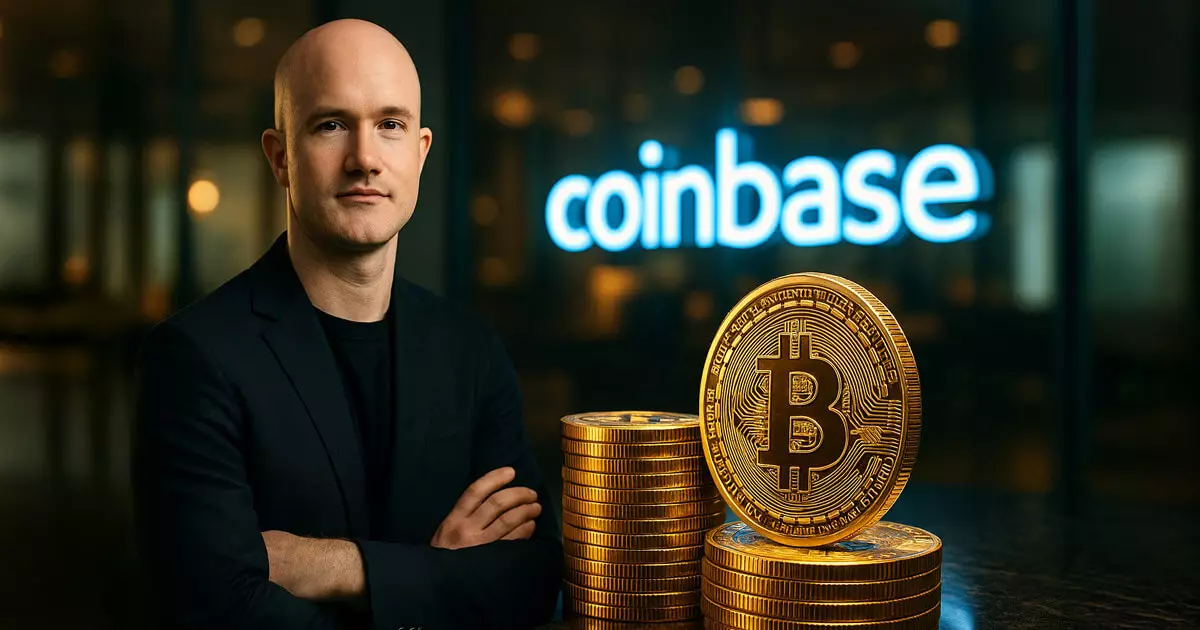Brian Armstrong, CEO of Coinbase, recently revealed that the exchange is steadily purchasing Bitcoin on a weekly basis. At first glance, this move might seem like a positive display of confidence or forward-thinking corporate strategy, but upon deeper reflection, it signals a troubling shift with potential long-term consequences—not just for Coinbase, but for the broader crypto market and investors alike. Unlike a straightforward announcement of a Bitcoin treasury, Armstrong’s vague “Long Bitcoin” strategy lacks transparency, raising important questions about the true intent, risk management, and future ramifications of these purchases.
From Reluctance to Recklessness
Historically, Coinbase has been cautious about locking large portions of its balance sheet in cryptocurrencies. Armstrong himself has previously admitted that the leadership team debated but ultimately rejected a bold pivot towards holding Bitcoin as a major reserve, citing risk concerns and financial stability during earlier growth phases. The recent steady accumulation of Bitcoin by Coinbase evokes discomfort, as it appears to contradict their earlier prudence. This signals either a significant change of heart—or worse, a reluctance to fully disclose the company’s financial strategies in a market known for its volatility. This pivot towards “long Bitcoin” simply because the environment feels more welcoming today ignores the unpredictable nature of crypto markets and the lingering systemic fragility that poses existential threats to all crypto-related businesses.
The Unseen Domino Effect On The Market
What makes Coinbase’s Bitcoin buying spree more alarming is the potential ripple effect it has on the entire ecosystem. With more public companies emulating the MicroStrategy model—converting substantial liquidity into crypto reserves—we are seeing a dangerous clustering of risk. Coinbase’s own Head of Research, David Duong, has issued warnings regarding structural imbalances. If a company like Coinbase accumulates large Bitcoin inventories and market sentiment sours, forced sell-offs could cascade across the ecosystem, exacerbating volatility and undermining investor confidence. Unlike diversified financial institutions that can absorb shocks by spreading risk, concentrated corporate Bitcoin holdings among crypto firms introduce the possibility of synchronized market downturns, making the entire crypto economy less stable rather than more resilient.
Investor Fervor Masks Underlying Instability
Coinbase’s stock recently hit a fresh high at $369.21, a figure not seen since late 2021, driven largely by investor enthusiasm for crypto exposure. But this pump can be deceptive. Investors are flocking to Coinbase as a proxy for Bitcoin holdings, attracted by indirect exposure without the direct volatility of owning the asset themselves. However, Coinbase’s quiet accumulation ties the company’s valuation closely to Bitcoin’s fate—a double-edged sword that could dramatically amplify risks if Bitcoin’s price falls sharply. This conflation of company fundamentals with a speculative asset inflates valuation bubbles and detaches stock performance from real business metrics. The enthusiasm for Coinbase shares reflects a market driven by sentiment and hope more than sound financial analysis, a hallmark of bubbles shortly before painful corrections.
Crypto Evangelism Meets Corporate Responsibility
There is an ideological allure to Coinbase adopting “Long Bitcoin” on its balance sheet. It aligns with center-right liberalism’s emphasis on innovation and market-driven progress, embracing new technologies to drive wealth and economic growth. Yet, ideology must not override prudent governance. Companies operating at the intersection of finance and emerging technology bear a responsibility to their shareholders and the wider market. Recklessly piling up Bitcoin in pursuit of crypto evangelism risks destabilizing the very ecosystem that sustained Coinbase’s rise. A more diversified, transparent, and measured approach to crypto exposure would better preserve investor trust and promote sustainable growth—objectives that should take precedence over speculative bravado.
A Wake-Up Call Wrapped In Optimism
While Coinbase’s Bitcoin purchasing initiative may initially spark excitement among crypto proponents, it should also serve as a cautionary tale. Corporate Treasury Bitcoin accumulation is far from a panacea; instead, it introduces a minefield of financial risk and market fragility. Armstrong’s reticence to clarify the precise strategy only fuels concerns that Coinbase might be leaning into hype over sound corporate stewardship. For investors who’ve seen the boom-bust cycles of crypto before, this is not a signal to blindly rejoice—it’s a clear warning to scrutinize what lies beneath the headlines and consider carefully the precarious consequences of this new chapter in digital asset finance.


Leave a Reply